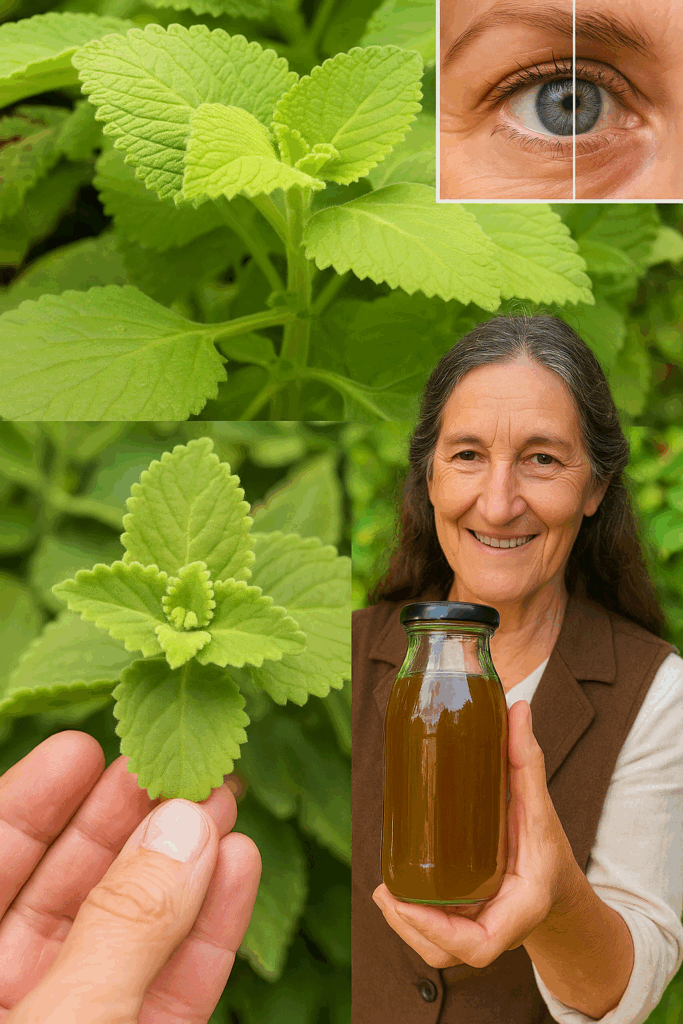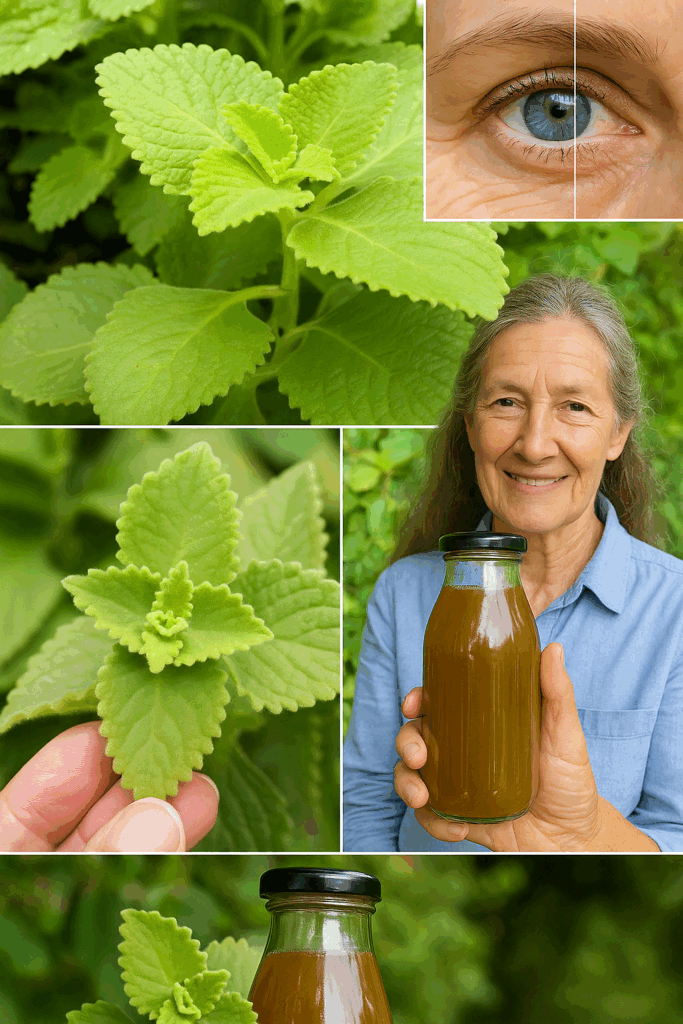Oregano isn’t just a flavorful herb for pasta—it’s also a hidden ally in supporting eye health. While it’s not a treatment for eye disease, oregano’s rich blend of antioxidants, anti-inflammatory compounds, and key nutrients may help protect your eyes from oxidative damage, dryness, and strain.
Here’s a look at the scientific potential of oregano for vision, how to use it safely, and important precautions to remember.

👁️ 1. How Oregano May Support Eye Health
A. Packed with Vision-Boosting Antioxidants
Oregano contains:
- Lutein & Zeaxanthin – carotenoids known to protect the retina and macula
- Vitamin A – essential for night vision and maintaining the cornea
- Rosmarinic acid & carvacrol – antioxidants that reduce cellular damage in eye tissues
Benefits:
✅ Protects against age-related macular degeneration (AMD)
✅ Fights oxidative stress from UV rays and screen exposure
✅ May slow vision deterioration over time
B. May Help with Dry Eyes
Oregano tea promotes hydration and supports the tear film that keeps your eyes moist.
Its mild anti-inflammatory effects can help relieve discomfort related to dry eye syndrome.
C. Natural Antimicrobial Properties
Oregano oil contains carvacrol and thymol, which:
✅ Fight bacteria and fungi
✅ May reduce risk of eye infections like conjunctivitis (when used around—not in—the eyes)
⚠️ Caution: Never apply oregano oil into the eyes—it can burn and cause damage.
D. Eases Eye Strain and Puffiness
Oregano’s natural anti-inflammatory action helps reduce:
- Irritation from screen overuse
- Redness or puffiness around the eyes
This makes it useful for those working long hours in front of computers or dealing with seasonal allergies.
🍵 2. How to Use Oregano for Eye Health
A. Drink Oregano Tea (Best Method)
One of the safest ways to enjoy the benefits of oregano for vision.
Recipe:
- 1 teaspoon fresh or dried oregano leaves
- 1 cup hot water
- Steep for 5–10 minutes, strain, and sip
- Drink 1–2 times daily
This supports your body’s natural defenses and helps fight inflammation.
B. Include It in Your Diet
Add oregano to:
- Salads, soups, roasted vegetables
- Smoothies (blend with citrus or greens)
- Homemade spice blends (with turmeric or basil)
This enhances your vitamin A intake and introduces eye-supportive compounds.

C. Use Diluted Oregano Oil Topically (Not In Eyes)
You can apply it around the eyes, never inside.
How to use:
- Mix 1 drop oregano oil with 1 tablespoon carrier oil (like coconut or olive oil)
- Apply gently to the under-eye area to soothe puffiness or minor irritation
- Avoid lash lines or direct contact with the eyes
⚠️ 3. Precautions
❌ Never apply oregano oil directly to the eyes – It is too strong and can damage the delicate eye tissue.
❌ Pregnant or breastfeeding? Avoid concentrated oregano oil without doctor approval.
❌ Sensitive digestion? Oregano supplements can irritate the stomach if taken in large doses.
❌ Pre-existing eye conditions? Always check with your ophthalmologist before using oregano as part of your eye care regimen.
👀 Summary: A Herb That Sees Beyond the Kitchen
Oregano offers surprising benefits for your eyes, thanks to its antioxidant, anti-inflammatory, and antimicrobial compounds. Whether you sip it in tea or add it to your meals, oregano may help:
- Protect against macular degeneration
- Fight eye strain
- Ease dryness and puffiness
- Boost overall eye wellness
Use it wisely—especially around the eyes—and you may find this common herb becomes a smart addition to your natural vision support strategy.
🌿 Would you like a full herbal guide for long-term eye health? Just ask!


